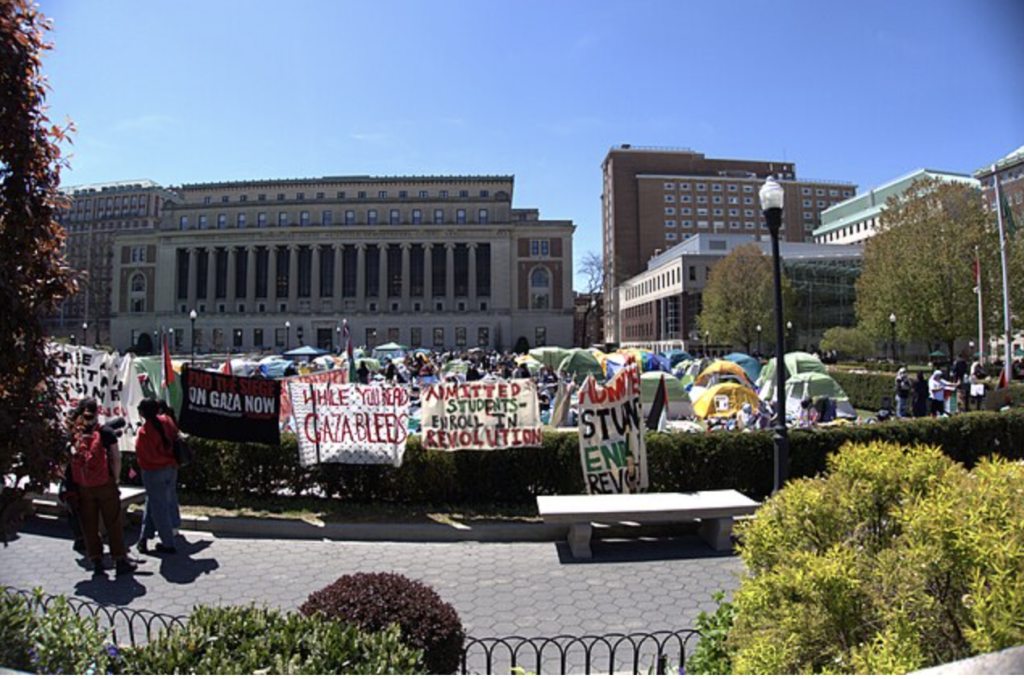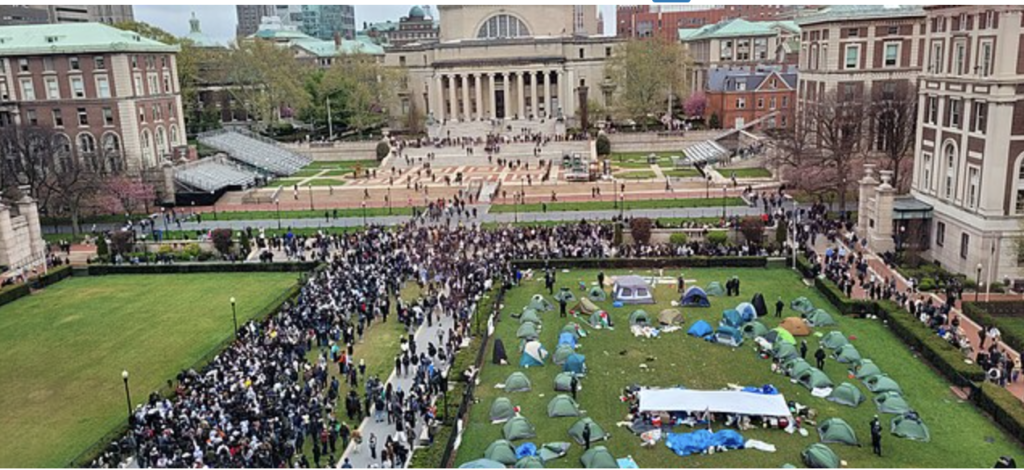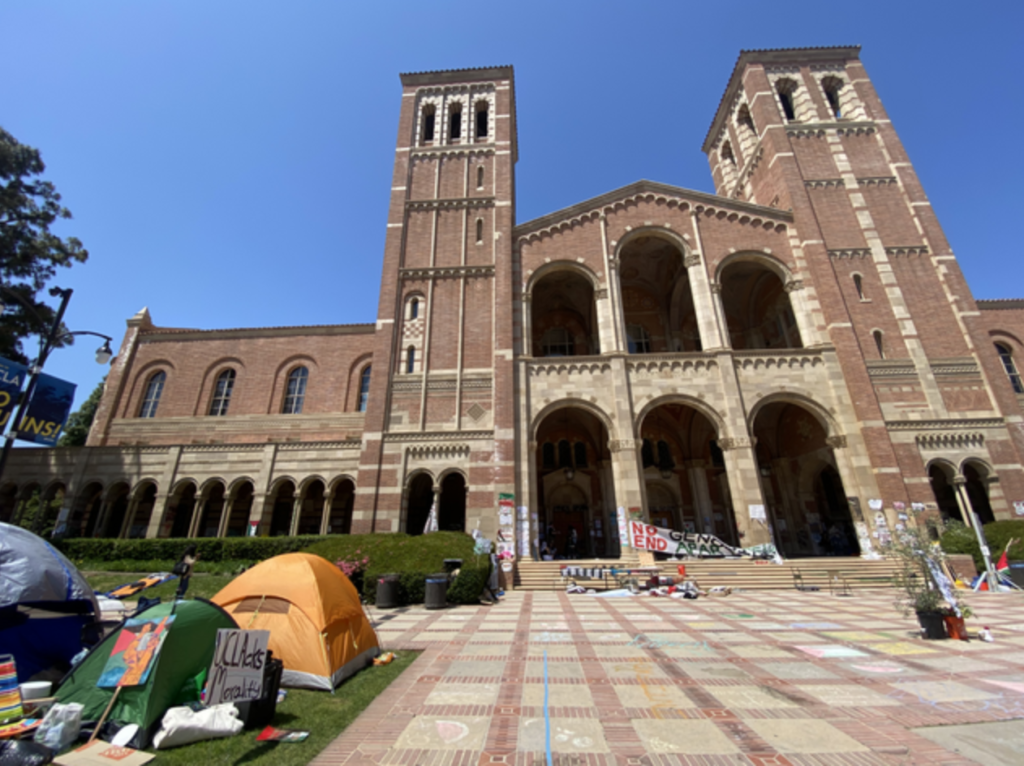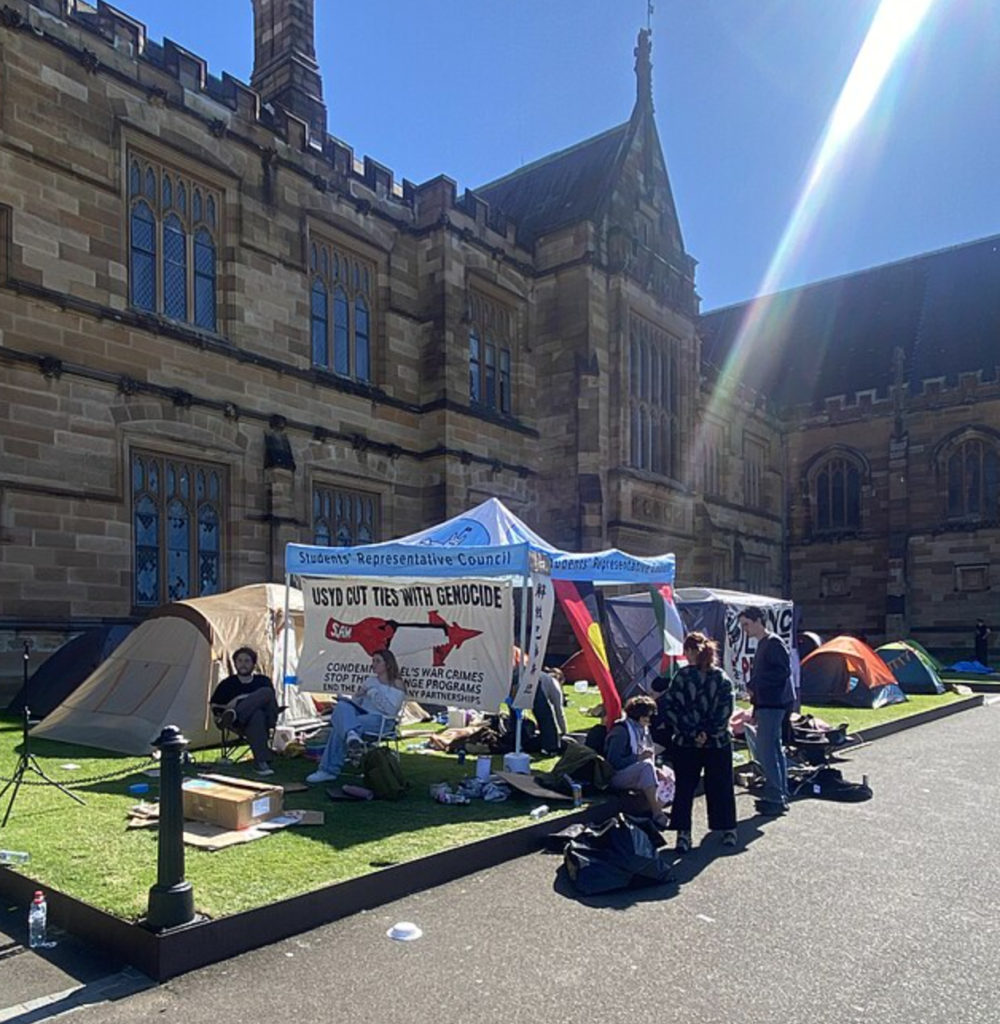What Can Gaza Student Protests Teach Us?

By: Ghassan Rubeiz / Arab America Contributing Writer
Editors Note: After the writing of the article below, last night, police clad in riot gear commenced the arrest of numerous pro-Palestinian demonstrators at Columbia University. The escalation occurred as protesters occupied a campus building, encouraging and inspiring continued activism across the US.
As the student protests against Israel’s conduct of the war in Gaza spread from campus to campus, our national debate about Palestine is deepening.
Student civil disobedience tactics have interrupted classes, occupied campus space, pitched tents, built encampments, played loud music, chanted slogans of freedom, organized lectures and demonstrations. Each campus is different in its demands and tactics. For example, Columbia University students call for cutting ties with Microsoft and Google on account of their relationships with Israel’s military. Yale students want the university to sever relations with the arms industry, and Michigan University demands ending relations with projects that violate human rights.

The students “have lit the fire now consuming US campus”, argued Tim Craig, Hannah Natanson and Richard Morgan. Some university administrations are alarmed. Last week, Columbia University, where the movement started, asked for police intervention. Protestors were charged with trespassing on campus property. The pressure is growing from both sides. Since April 18th, the police have arrested several hundred students on campuses nationwide.(washingtonpost.com)
Despite the peaceful nature of the protests, some Jewish students have felt personally threatened.. Many in the American Jewish community have expressed strong opposition to the movement, claiming it anti-Semitic, “pro-Hamas”, for the “destruction of Israel”, or for the “elimination of Jews”. But there is no solid evidence to support claims of a wave of anti-Semitism sweeping American campuses. Incidents of actual anti-Semitic hate speech have been isolated, and when verified, such negative individual acts have been condemned by the organizers of the protests.
The student protests are a grassroots phenomenon. They may not succeed in changing American votes significantly, or affecting complicated patterns of university investments, but they are affecting opinions, values and justice. This movement is certainly about Israel’s occupation and the war in Gaza, but it is also about the nonviolent struggle against racism and inequality. Those who label the protestors “leftists” or “Islamists” are engaged in stereotyping. Seeking justice for Palestinians is not an ideological question of right or left; of supporting or opposing Hamas; or of identifying with or rejecting militant Islamists. Rather, the movement brings Palestinians and Israelis to work together for durable peace.

Jewish students are quite active in this movement; they are supported by several Jewish NGOs, and a sizable section of the American Jewish community. The protests have kept American society aware that suffering in Gaza and the West Bank continues. The struggle conveys solidarity with Palestine but also concern for the future security of Israel. It is my feeling that Arab Americans are greatly appreciative of the participation of Jewish students in the movement.
Media analysts, meanwhile, are divided in their assessments. The Washington Post’s Megan McArdle is critical of the movement because “it is not effective”. She asks why throngs of protesters would be crowding the campus to protest actions more than 5,000 miles away. The answer is simple: daily exposure to intense suffering affects people’s attitudes. And six months of exposure to war crimes in Gaza has done just that. Recent polls show that four-fifths of Americans between the ages of 16 and 31 are not satisfied with the way President Biden is handling the war in Gaza.
With critics like McArdle in mind, Foreign Policy’s columnist, Howard W. French, analyzes the broader significance of the movement: “Some people have called student protestors a threat. Instead, they are providing us all with an education in democracy.” (foreignpolicy.com)
Indeed, the protests are part of a long record of contributions to American foreign policy. Political activists on campus today remind us of the student revolt against the Vietnam War in the sixties and seventies; of protests against apartheid in South Africa in the eighties, all the way up to the recent Black Lives Matter movement.

The Israeli occupation has managed to suppress almost all opportunities for cooperation between Arabs and Jews, especially since the war in Gaza. There may not be a better place for Arab and Jewish Americans to work together and to reflect on (and mediate) peace and justice, than the American university campus. It is protected by the constitution; it offers rich opportunities to build new leadership and to try out new ideas; it is a friendly place for collaboration and for establishing bonds across ethnicity and religions. It is a natural place for intercultural community building.
The ongoing protests have shifted American attitudes toward Palestinian victims in Gaza from passive empathy to political engagement. They have raised questions about the complicity of American foreign policy in the Gaza war and beyond. The movement may not succeed in severing relations of the US campus with Israel; but it could help shift the focus of American partnerships from militarism to human service, from politics to education, and from war to peace. American academia should not be a part of Israel’s defense arsenal.
The movement has provoked passionate debate about freedom of speech on campus. American students are entitled by their constitution to question the way universities use their educational and financial resources. When students organize to change university policies, they ought not to be punished, arrested, or expelled. Students are protesting academia’s complicity in Israel’s wars, and its occupation of the Palestinian people and their land. They are drawing our attention to the fact that the lives of the children of Gaza are as sacred as any others. And they are engaging in a debate that is beneficial to America’s democracy – an experience that university administrations should be fostering, not suppressing.
Ghassan Rubeiz is the former Middle East Secretary of the World Council of Churches. Earlier he taught psychology and social work in his country of birth, Lebanon, and later in the United States, where he currently lives. For the past twenty years, he has contributed to political commentary and delivered occasional public talks on subjects related to peace, justice, and interfaith. You can reach him at rubeizg@gmail.com
The views and opinions expressed in this article are those of the author and do not necessarily reflect the position of Arab America. The reproduction of this article is permissible with proper credit to Arab America and the author.
Check out our Blog here!








